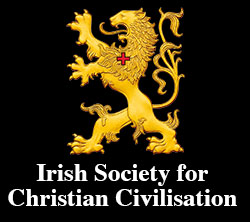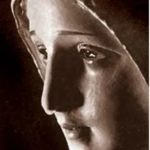There are many reasons why we should defend traditional marriage. The most important of these reasons is that it conforms to the natural law and, above all, to the moral law, and therefore it is the will of God.
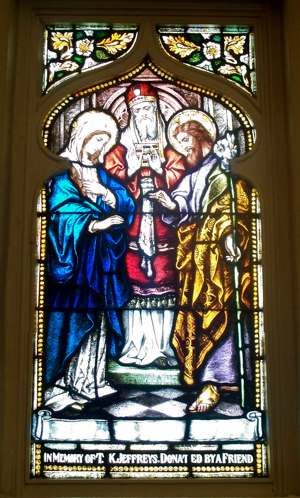
It should be clear that regarding same-sex “marriage”, the use of the word “marriage” should always be understood in reference to the recognition and support marriage is given by the State, and the reasons for this recognition and support. The State gives recognition and support to that which, in turn, benefits the State, thereby protecting and promoting the common good, the raison d’être for the State’s very existence. To do otherwise would be an injustice: either by neglecting to reward that which favours the common good; or by squandering public resources on something that is of no benefit to the State.
Ryan T. Anderson observes: “Marriage exists to unite a man and a woman as husband and wife to then be equipped to be mother and father to any children that
union produces. It is based on the anthropological truth that men and women are distinct and complementary. It’s based on the biological fact that reproduction requires a man and a woman. It is based on the sociological reality that children deserve a mother and a father.”1
Lifelong marriage between one man and one woman, open to pro-creation, benefits the State by providing the optimal conditions for bringing new citizens into the world and nurturing them to maturity, thus preparing them to contribute to society. In other words, an essential purpose of marriage in the eyes of the State, is to produce mature citizens, without whom the State is destined for extinction in the not too distant future.
The Family, the essential building block of society which is consequential to, or results from, marriage, thus relieves the State of the massive burden of providing the future citizens with all the love, care and sacrifice that are the essential supports of the proper development of a child. The State has every interest in publicly supporting the institution that does this – i.e. marriage as it is traditionally understood.
To make the debate about equality is to entirely miss the point, and to misunderstand the definition of marriage. In fact, it is to misunderstand the meaning of “definition”. The fact that marriage has a definition with a strict interpretation, excludes inequality. A definition that is not open to interpretation means that it necessarily treats everyone equally within the parameters of that definition – no exceptions.
Several objections could be raised at this point. Regarding the last point, if marriage was redefined it would still have a definition, not open to interpretation. Therefore it would still exclude inequality and discrimination. Those who believe this at least accept that the current definition of marriage treats everyone equally. It shouldn’t, then, be necessary in principle to discuss the equality issue any further. To fully address such an objection however requires an understanding of the State’s role in promoting marriage to ensure a society grounded upon citizens nurtured until they have reached maturity in accordance with the common good.
The foregoing nonetheless begs a question: If a definition can be amended once, who is to say that it cannot be amended again and again? Indeed, if marriage can be redefined to accommodate an intrinsically sterile union between two persons of the same sex, it logically follows that it can be redefined in other ways as well. Can those who invoke the equality argument in favour of “marriage” between people of the same sex explain why they aren’t campaigning for polygamy, marriage to animals, children or machines on the same basis of equality? Thus, if militant activists for same sex “marriage” consider marriage to exclude legalised forms of bestiality or paedophilia, for example, they would, in accordance with their own logic, be guilty of the very discrimination they rail against. Clearly then, any attempt to redefine marriage opens the floodgates to the most arbitrary forms of “union” involving human beings. It follows that any attempt to redefine marriage on the basis that the male-female aspect of it is irrational or discriminatory undermines the three historic components of marriage, namely:
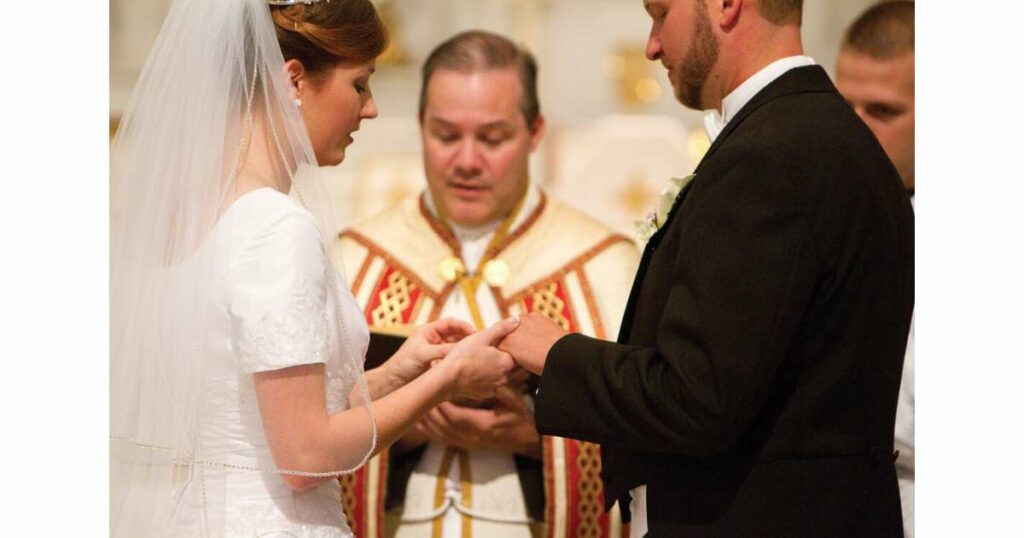
1. A monogamous union;
2. A sexually exclusive union, and
3. A permanent union.
The State has no particular interest in whether people love each other or not. Love can be fickle and the benefits unquantifiable. Besides, there are people who love all of humanity, and nobody is asking that they receive the support that is given to the lifelong commitment of marriage.
Another objection that is often raised is that some marriages are childless and therefore do not fully conform to the strict definition of marriage. This objection, without adding anything to the debate, is insulting to the many childless couples who are open to procreation and are fully willing to accept the burdens and sacrifices of parenthood, but through an accident of nature and thus through no fault of their own, are unable to have children. The State cannot judge the intentions of the couple, but only whether the marriage is, in principle, lifelong and open to the procreation of children.
Yet another objection that has been raised is that since adoption is permitted by parents who are not the natural parents of the child, why not admit that it would be equally good to allow same sex couples to be adoptive parents. Once again, this objection does not address a change in the definition of marriage. Adoption, as traditionally practiced, has the goal of placing a child with the misfortune of not having its own parents in a situation that resembles the natural family as closely as possible – i.e. with both a mother and a father.
In this respect, the burden of social science research overwhelmingly supports the idea that gender-differentiated parenting is essential to human development. Therefore whether or not a married man and woman are the biological parents of a child, the roles respectively played by the mother and the father are unique and irreplaceable. Any attempt to negate this elementary fact is tantamount to stating that the two sexes are not different to the core and therefore both are not needed for the optimal development of a human being. Such a conclusion is an absurdity.
Thus adoption of children by a married couple consisting of a man and a woman, while “second best”, lies within the confines of the definition of marriage properly understood. Then there are single parents, abusive natural parents, excellent adoptive parents, orphans, dysfunctional families, good unmarried parents, etc. Again the general rule, supported by statistics and many studies, is that the best ambience in which to nurture a child is in a home brought up by his natural parents who have made the lifelong commitment involved in marriage.
It could also be pointed out that the sexual revolution already puts a strain on marriage. Since the State allows this, why not also allow same-sex marriage? The answer is that one abuse does not justify another. If the State has somewhat lost sight of why it supports marriage, the solution is to restore the proper understanding of marriage and provide the concrete moral, social and economic underpinnings for its strengthening, rather than to further destabilise it. To be fully consistent, those who oppose same-sex marriage should also oppose the sexual revolution in its entirety. It is in this revolution wherein lie the main causes of the collapse of the marriage culture, child poverty, higher crime rates and ever greater levels of welfare dependency. For these reasons, defending traditional marriage is consistent with defending society’s welfare and promoting the common good.
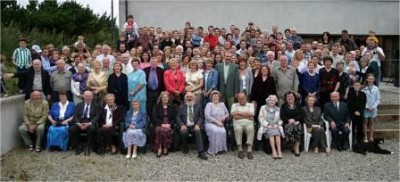
This year, it is more crucial than ever that we turn to prayer and intercession to increase devotion to Our Lady across our country. That’s why you’re invited to join us in the Three Hail Marys Pledge, a powerful devotion that can bring personal spiritual benefits and national transformation. By reciting three Hail Marys daily, you honour the Immaculate Heart of Mary and seek her intercession for the conversion of sinners, the salvation of souls and the restoration of Ireland’s Catholic Faith. This ancient devotion, revealed to Saint Mechtilde, promises spiritual benefits including protection from mortal sin and the assurance of a good death. Your daily prayers will contribute to an increase in devotion to Our Lady, the conversion of sinners and the moral renewal of our country. Let us commit to this powerful devotion and seek the guidance and protection of Our Lady.


